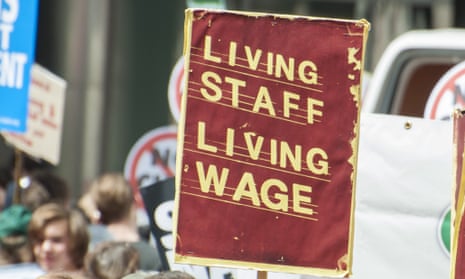In 2015 I hope that the public will get behind grassroots campaigns. There is a desperate lack of funding for smaller, local campaigning – especially when you look at how much money goes to NGOs and big charities in comparison.
The average annual income of groups that apply for money from Edge Fund, a relatively new funding network to support grassroots campaigns, is about £2,500. That really is very little when you consider the £64bn that goes to registered charities every year.
I must ask, what is being achieved with that £64bn? With massive increases in poverty, homelessness and inequality, it is understandable that people would choose to donate what spare resources they have to provide for people’s basic needs. We cannot leave people hungry on the street, but we must think ahead.
Charities can provide a meal to someone who needs it, but the next day the service user is often there again – dependent on the organisation. In my opinion, traditional charity can deal with the consequences of injustice but it doesn’t challenge the root cause.
Many charities push for change as well as providing much needed support and services but, in my mind, they are often restricted. Organisational hierarchy means some charities fail to react quickly enough and legislation, like the Lobbying Act, can prevent them from speaking up. If the voluntary sector is to achieve something more – a world without poverty, inequality, environmental destruction or other injustices – then a more fundamental change is needed. Especially as it does not look like things will be improving regardless of who is elected in May.
In 2014 there were many grassroots campaign successes, proving that change from the bottom up works. From the Focus E15 Mothers and the New Era Estate residents, who successfully challenged our housing system by highlighting current threats to social housing. To the many who stood up and fought for a living wage in their workplaces, including the cinema workers of Brixton’s Ritzy Cinema.
2014 was a year to be remembered, but this year we can do better. Let’s make 2015 the year of grassroots action and people determining their own futures. If you want to have a real impact with your donation, support groups that are free enough, bold enough and optimistic enough to think big.
Even if just 0.1% of the £64bn that goes to registered charities every year went to small independent groups we’d stand a much better chance of creating a just and equal world that works for us all.
It’s not about writing off charity altogether – it is about balancing the playing field.
For more news, opinions and ideas about the voluntary sector, join our community – it’s free!
